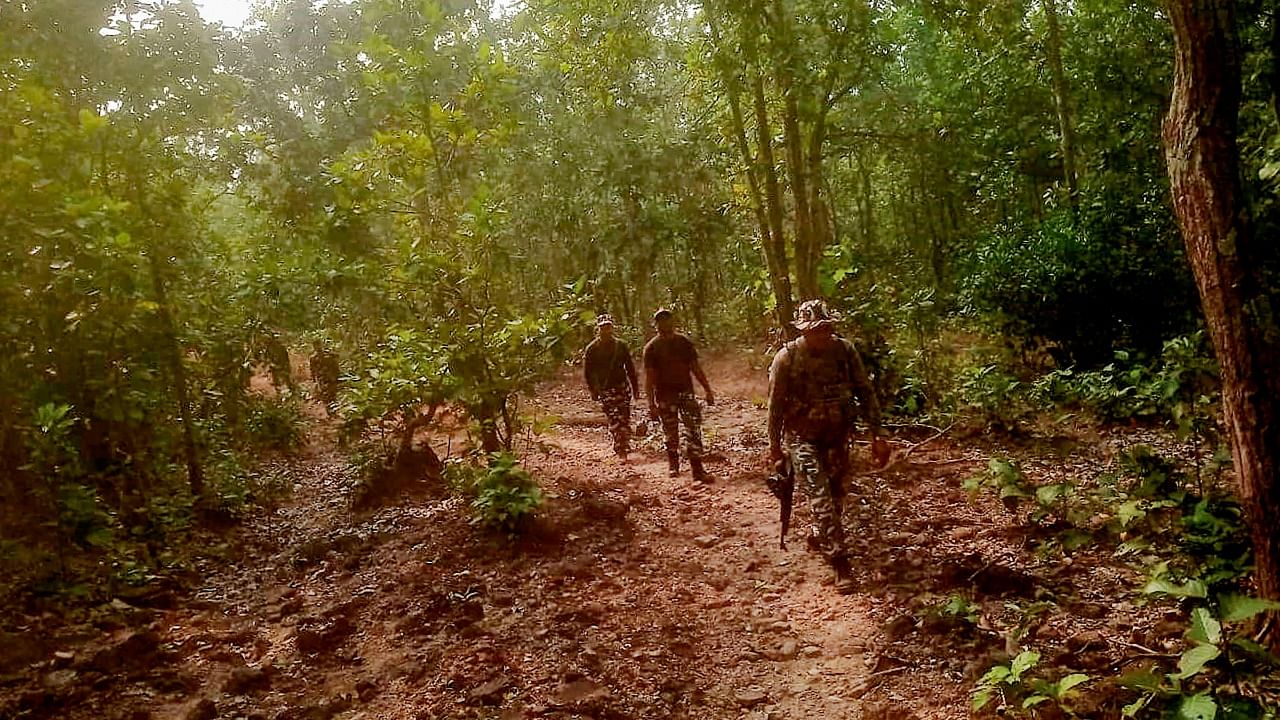
Around 45 per cent of police personnel and common people believe that the demands of insurgency groups and Naxals are "genuine but their demands are wrong" and cite "inequality and discrimination" and "unemployment" among major reasons for people joining such outfits, a survey has claimed.
The 'Status of Policing in India Report 2020-2021: Policing in Conflict-Affected Regions' also claimed that both police and common people generally supported a fair trial for insurgents and Naxals but "troublingly" one in every five policemen or common people were of the opinion that killing a "dangerous Naxalite/insurgent is better than a legal trial".
The report prepared by an NGO Common Cause in association with CSDS, Lokniti, Tata Trusts and Lal Family Foundation also highlights a "prejudice" among police and common people that social groups like Adivasis and poor are more likely to join such groups and this colours police's treatment of them.
The report is based on surveys conducted in Naxal or insurgency-infected 11 states -- Jammu and Kashmir, Andhra Pradesh, Telangana, Odisha, Chhattisgarh, Jharkhand, Bihar, Assam, Tripura, Nagaland and Manipur.
According to the survey, 46 per cent of the common people and 43 per cent of the police personnel believe that the "cause of the conflict groups is legitimate but the means adopted by them are wrong."
People from insurgency-affected regions (53 per cent) are more likely to hold this opinion, compared to those from LWE-affected regions (42 per cent).
Among the SCs 42 per cent, STs 50 per cent and OBCs 43 per cent believe that the demands are genuine but methods wrong formulation. It is 40 per cent among poor, 44 per cent lower class, 50 per cent middle class and 60 per cent among the rich.
It said 22 per cent of common people and 42 per cent of police believe Naxals and insurgent groups spread "unnecessary violence" while 20 per cent of the common people and 9 per cent of police believe these groups "struggle for the rights of the poor".
On the opinion on dealing with Naxals and insurgents, 75 per cent of police personnel and 66 per cent of common people were of the view that "no matter how dangerous" they are, police should try to "catch them and follow proper legal procedures".
In what was described as troubling, the survey said 21 per cent of police personnel and 19 per cent of common people were of the view that "for the greater good of the society, sometimes killing" them is "more effective than giving them a legal trial".
Asked about the major reasons for naxalism or insurgency in their areas, 14 per cent of common people believed that inequality, injustice, exploitation and discrimination led to discontenment while 13 per cent marked poverty and 11 per cent unemployment as the causes for people joining such groups.
Among policemen, 17 per cent felt unemployment as the major reason while poverty/hunger were chosen by 15 per cent and inequality, injustice, exploitation and discrimination as the main causes for insurgency or naxalism.
The survey said there is "systemic bias against certain social groups who the police believe are more likely to join or support naxalism or insurgency activities -- 26 per cent police personnel feel that tribals or indigenous people are more likely to get into naxalism/insurgency while 11 per cent said that poor are more susceptible in getting involved in such activities.
Women have an "especially vulnerable status and tend to be targeted" both by the conflict-groups and security forces in the conflict-affected areas -- 22 per cent of people said they knew a woman either arrested by the police or detained by the army or paramilitary.
People also spoke of women being sexually assaulted by the conflict groups (10 per cent), police (7 per cent) and the army/paramilitary (5 per cent).
